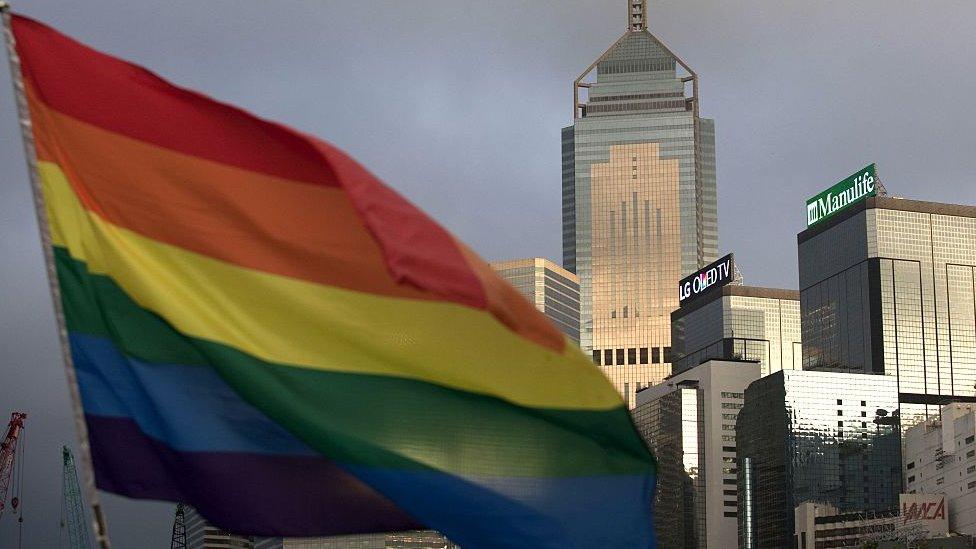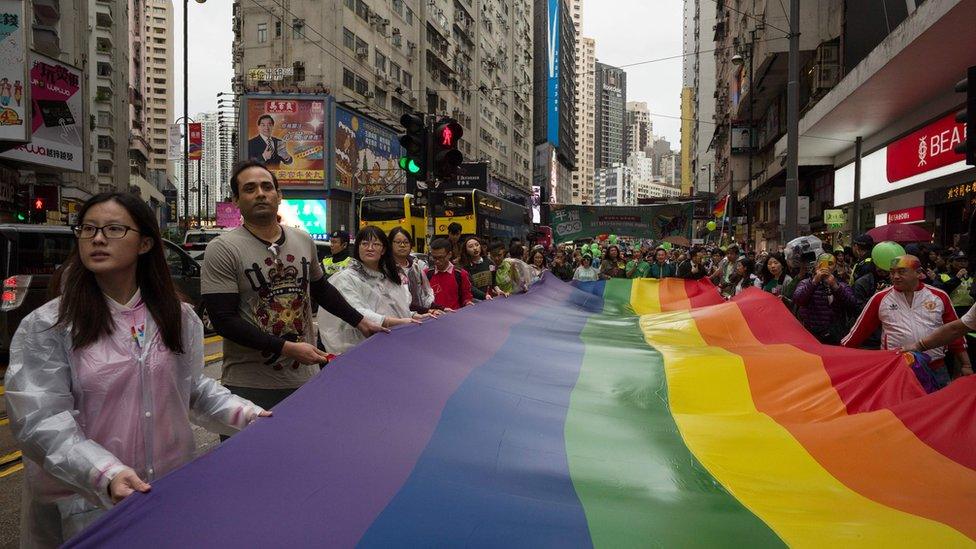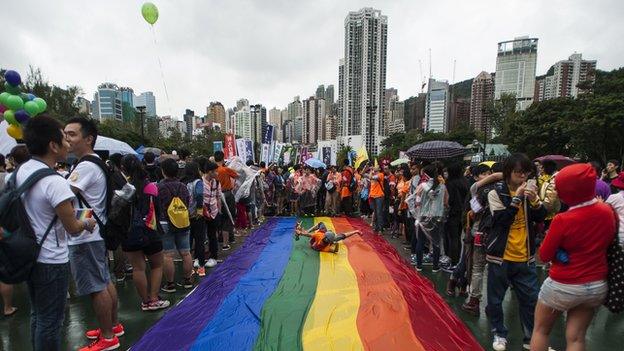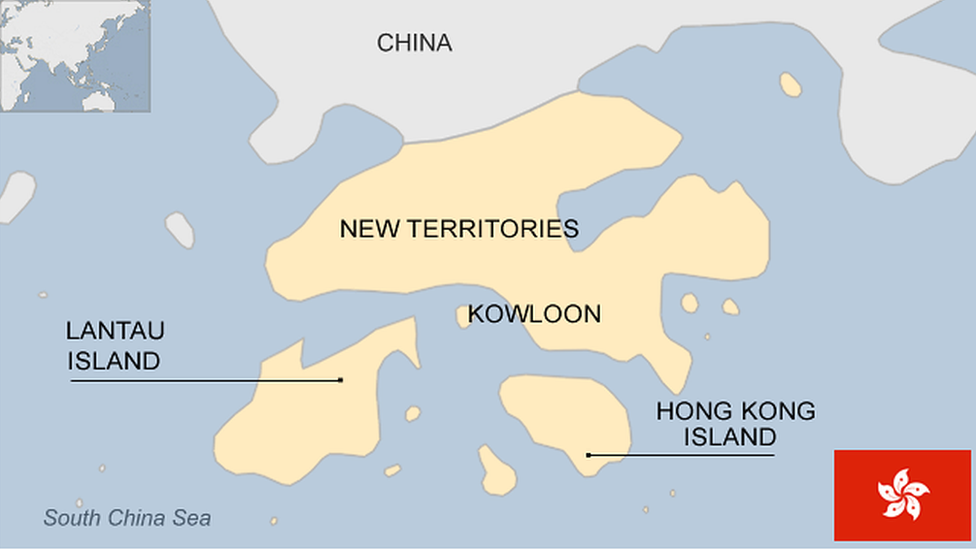British lesbian QT wins right to Hong Kong spouse visa
- Published

Same-sex marriages are not recognised in Hong Kong
A married British lesbian has won the right to live and work in Hong Kong with her wife, in a landmark ruling from the territory's top court.
The court found the woman, identified as QT, should be granted a spousal visa which she had initially been denied.
The decision ends a long-running legal battle and could enable more same-sex couples to move to the financial hub.
Same-sex marriages are not recognised in Hong Kong although discrimination based on sexual orientation is illegal.
"I have fought this long battle because the government... has treated me like a second class citizen because of my sexual orientation," said the British woman, through a statement released by her lawyer Michael Vidler.
"Although I cannot be [there] in person today, that does not diminish the joy I feel, knowing that Hong Kong's highest court has upheld my right to be treated equally."
QT entered into a civil partnership in England in 2011 after more than seven years with her partner.
In the same year, the couple moved to Hong Kong after QT's partner was offered a job there.
In 2014, QT sued the director of immigration after she was denied a spousal visa that would have granted her resident status, and allowed her to work without the need for a separate visa.
She won her case at the Court of Appeal, but that ruling was challenged and taken to the city's top court.
The latest decision ends a three-year legal battle which drew support from banks and law firms keen to attract talent to Hong Kong.
Firms including Goldman Sachs and Morgan Stanley publicly backed QT and argued diverse hiring practices were needed to attract top talent.
"The ability to bring in dependants is an important issue for persons deciding whether to move to Hong Kong," the court said, according to AFP news agency. It said it was "counter-productive" to restrict that right to straight couples.
- Published6 December 2016

- Published25 September 2017

- Published14 May 2015

- Published7 January
